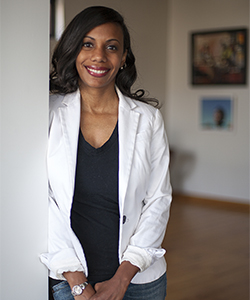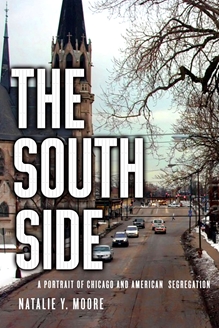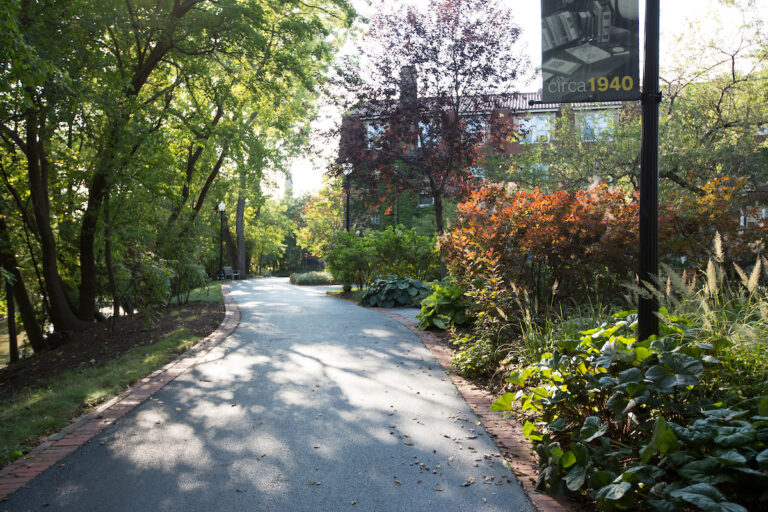 CHICAGO (October 17, 2016) — For more than a decade, North Park University’s Campus Theme program has been a key part of its undergraduate experience. Beginning in 2003, a yearlong series of events, lectures, and discussions has occurred across campus around a central question of the human experience. Meant to connect students from a variety of disciplines in a common pursuit, recent themes have included What is Truth?, What Is Food?, and What Is Peace?.
CHICAGO (October 17, 2016) — For more than a decade, North Park University’s Campus Theme program has been a key part of its undergraduate experience. Beginning in 2003, a yearlong series of events, lectures, and discussions has occurred across campus around a central question of the human experience. Meant to connect students from a variety of disciplines in a common pursuit, recent themes have included What is Truth?, What Is Food?, and What Is Peace?.
This year’s theme, What Is Beauty?, marks the second year of a cycle in the Campus Theme series. Beginning last year, four questions—What Is Truth? What Is Beauty? What Is Good? What Is Sacred?—will be asked over four years. After that, the same cycle questions will begin again over the following four academic years.
“Since most undergraduate students are here for four years, our Campus Theme committee discussed the idea of a common set of questions,” said Dr. Karl Clifton-Soderstrom, associate professor of philosophy and the director of the Campus Theme program. “The shared experience of a single question happening across campus is essential to Campus Theme, and this allows us to enhance the shared experience across different classes and perhaps even generations of North Park graduates.”
The pursuit of What Is Beauty? is already underway. On September 20, poet and translator Mark Tardi spoke on “The Beauty of Mathematics and Poetry” in Nyvall Hall, and on September 23, Clifton-Soderstrom moderated a panel of alumni artists addressing beauty.
‘The Beautiful City’
 Last Friday, students, faculty, staff, and guests gathered in Anderson Chapel to hear from Natalie Y. Moore, WBEZ South Side bureau reporter and author of The South Side: A Portrait of Chicago and American Segregation.
Last Friday, students, faculty, staff, and guests gathered in Anderson Chapel to hear from Natalie Y. Moore, WBEZ South Side bureau reporter and author of The South Side: A Portrait of Chicago and American Segregation.
Moore’s lecture, “The Beautiful City,” was particularly meaningful for North Park, as The South Side is the University’s Common Read selection this year. The Common Read program, similar to initiatives like One Book, One Chicago, is in its fourth year as part of the Campus Theme. Through the program, incoming first-year students have a shared experience of reading the same book—selected based on the Campus Theme—and then gather throughout the year to discuss its meanings and implications.
“Chicago can be very tribal,” Moore told the audience, “which in some ways can be negative, but there are also a lot of positives about it. There are a lot of long-lasting, deep connections in Chicago, and I think we should celebrate that. There’s so much other beauty that’s on the surface and below the surface.”
Moore sees segregation as the defining issue of the region. “It’s more important than pensions, violence, or income inequality,” she said. “It’s the common denominator in many of the issues we’re facing here in Chicago. We can’t honestly talk about unemployment, crime, violence, or food justice without addressing segregation.”
So how does Chicago become a more beautiful city? By asking how it can become desegregated, Moore said. “Segregation can seem so intractable, so cemented. A lack of creativity continues to stifle Chicago and the greater metropolitan area. Until policies address exclusionary isolation, it will continue. This is about proximity to power and resources—we have to create just and fair standards.”
When Moore completed her book, she was more hopeful than when she began, she said. While “there’s no silver bullet,” many potential solutions have been offered, particularly within Chicago’s universities, like North Park, she said. “I am a person of faith, and I have faith in humanity. Chicago is beautiful. You can have strife and loveliness coexist. I love my city, and I always want it to do better.”
Events throughout the year
Campus Theme events will occur throughout the year, with most of them free and open to the public. Beginning November 4, the work of Milwaukee artist Lois Bielfield will be displayed in the installation “Beauty Conventions” in Carlson Tower Gallery. In the spring, the University will also welcome, among others, Dr. Reggie Williams of McCormick Seminary, addressing “Beauty, Identity, and Social Change.”
Other guests will include gospel musician Jonathan McReynolds; origami artist Robert J. Lang; Amazing Grace author Aaron Cohen; and Dr. Gabriel Richardson Lear of the University of Chicago, addressing “Beauty and the Good Life.”
More events related to Campus Theme will be announced throughout the year. Please visit www.northpark.edu/campustheme for updates and more information.
Follow North Park University on Twitter @NPU. Learn more about North Park University.


